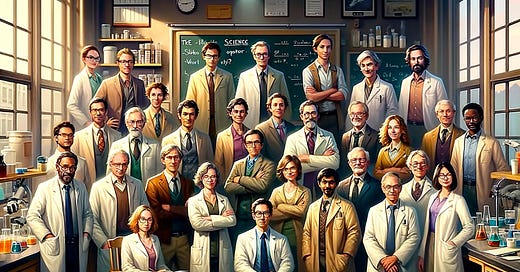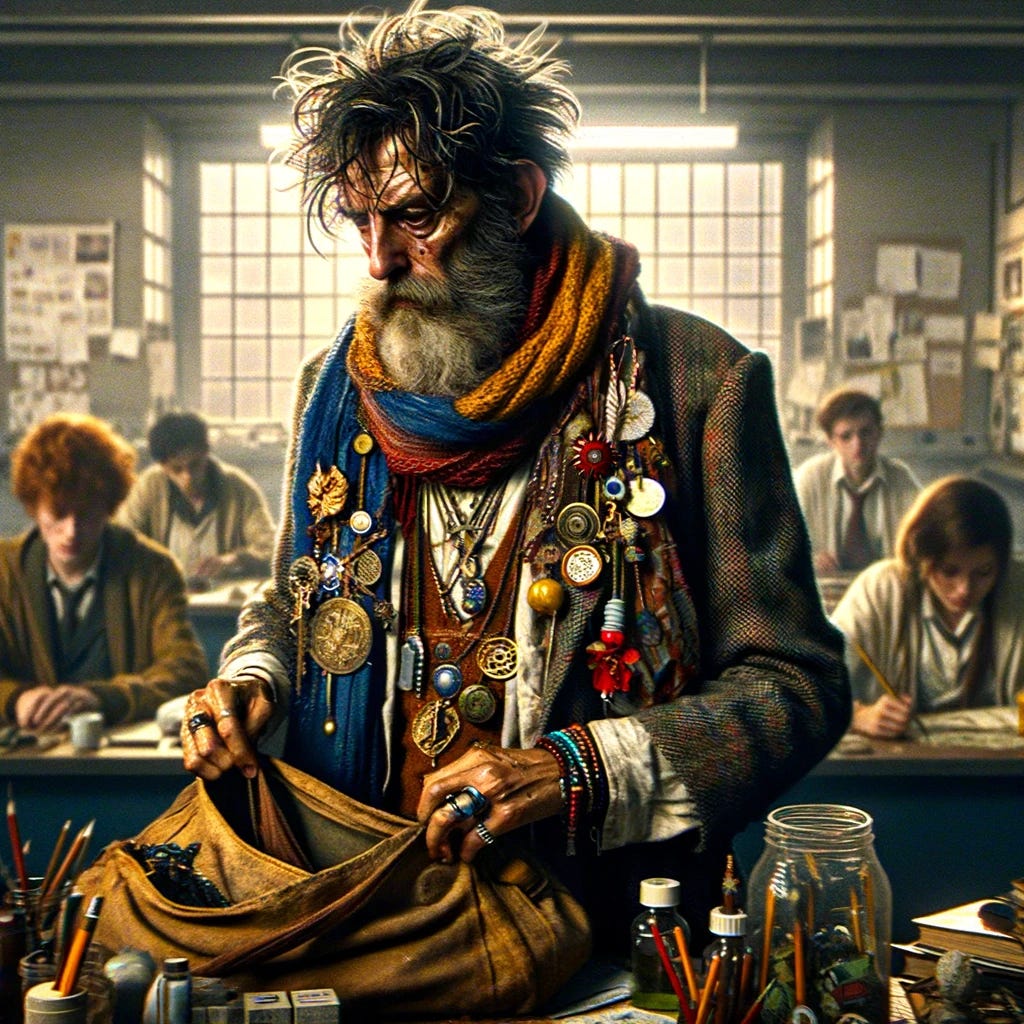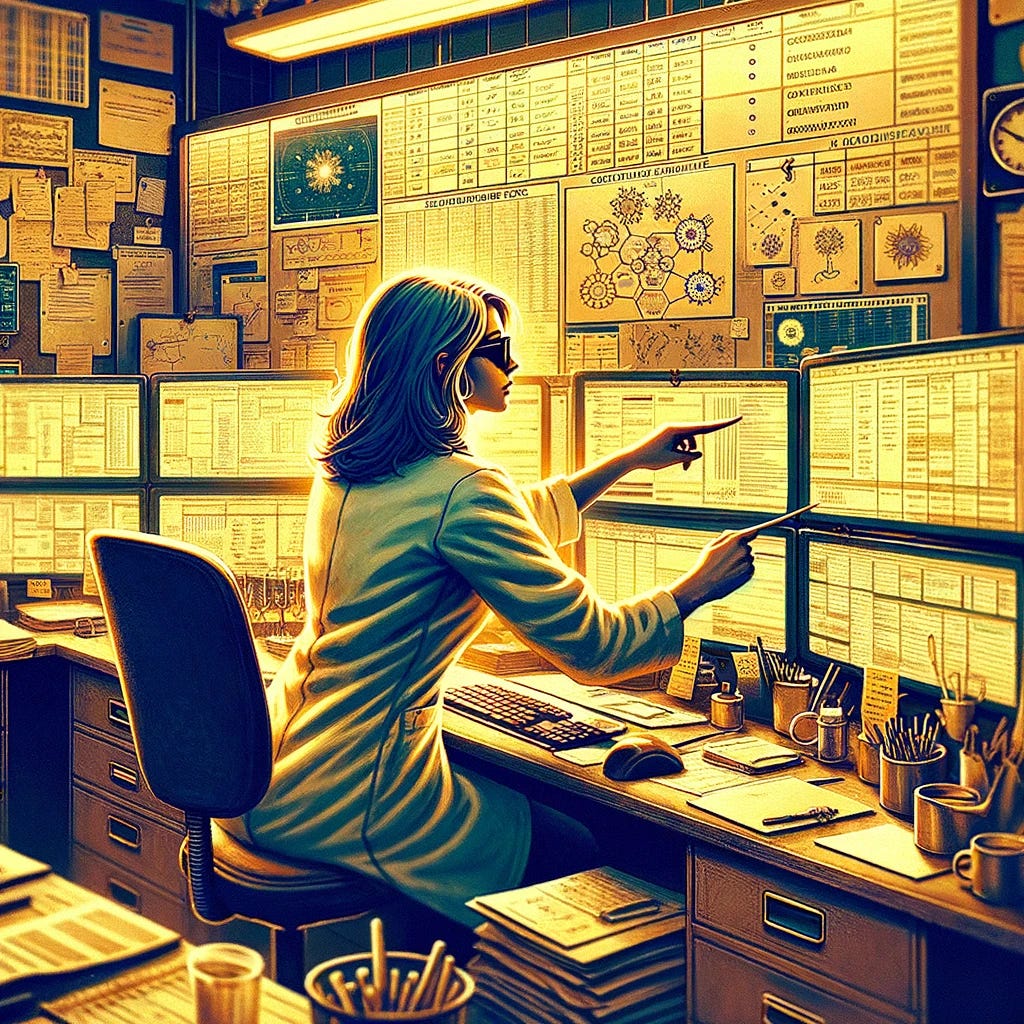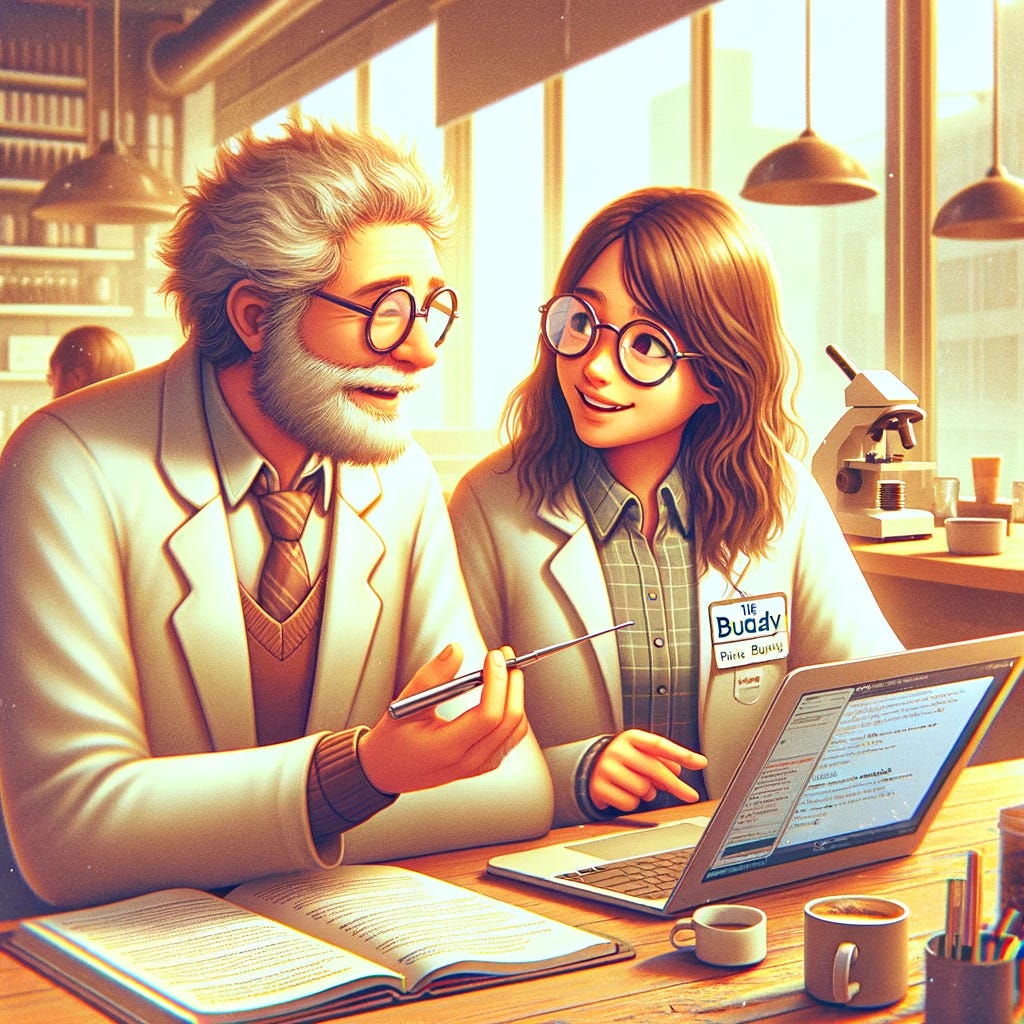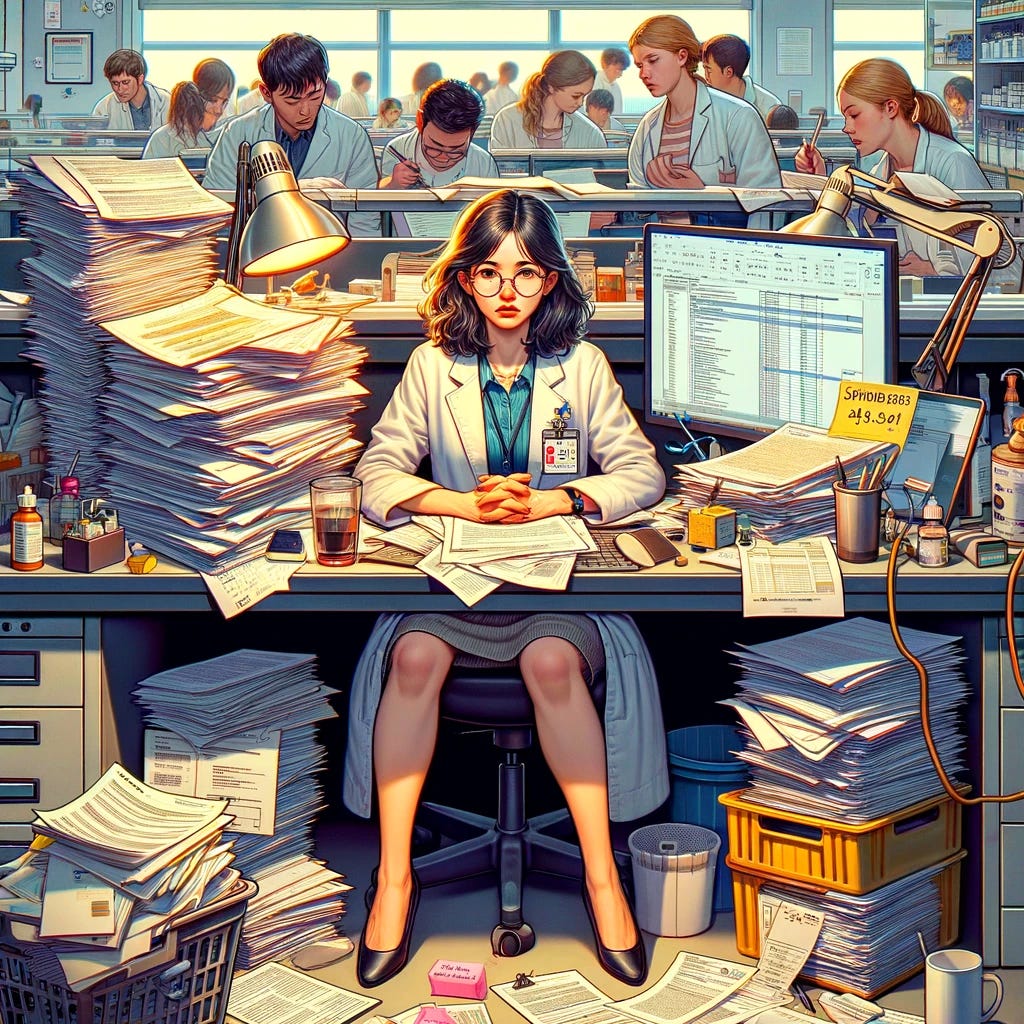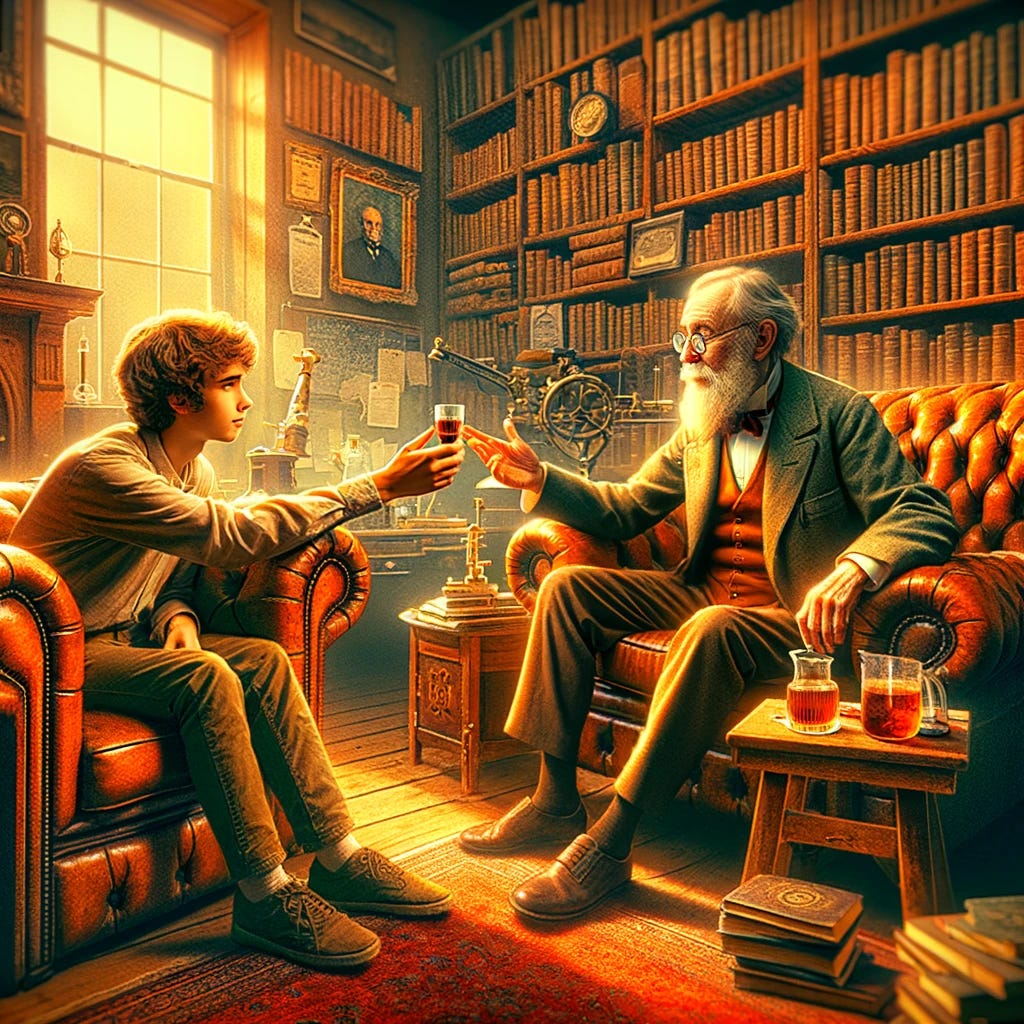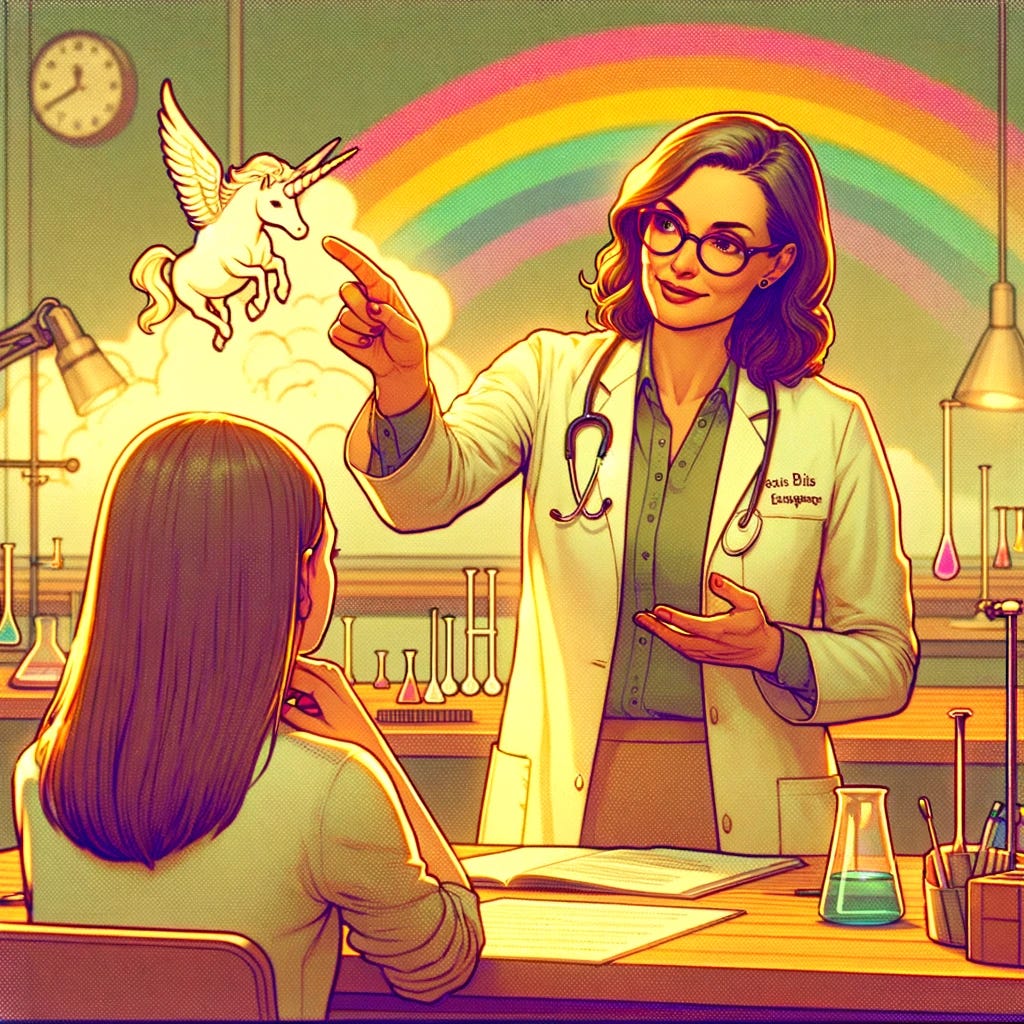PhD supervisor personalities – it's a mad mix
From wandering terror to best buddy, PhD supervisors come in an impressive range.
One of the reasons I wanted to go down the PhD route – other than having no idea what to do with my life and really only wanting to be left alone to do science instead of getting a ‘proper’ (read: lame off) job – was to eventually have my own students. I could teach them all the cool little tricks in the lab, show them how to chase grants to avoid becoming suddenly homeless and of course give them tactics for fending off Reviewer #2 and all the pedantic bullshit comments on the paper they worked so hard on. It’d be magical.
But another reason was to just hopefully counter some of the more terrifying personality types PhD supervisors came on. If you’ve spent any time with academics it only takes the gentlest of nudges to get them lamenting about their old PhD supervisor. The tyrants and the bullies. The loonies and cooks. And every now and then the heroes. The teachers. The ones we all wanted.
I wanted to make sure there were more of those.
So, here’s a little look at some of the ones I’ve encountered or heard of over the many years of listening to scientists complain/exclaim about stuff.
The Wanderer
Appearing in the lab for maybe a week or two, the Wanderer arrives in whirlwind of hugs and confused faces to dispense a few words of wisdom, sharp criticisms and a barrage of new information from their latest adventure, before dashing off just as suddenly to the next conference, meeting, expedition, or sabbatical.
You’re not really sure what it is they’re doing, and '“Supervisor” seems like a stretch at this point, but it’s probably important. Right? Maybe don’t tug at that thread.
Support will be low but eccentricity is going to be through the roof. Plus, you’ll (have to) get good at being super independent.
The Taskmaster
There simply aren’t enough hours in the days (or reagents in the lab) to satisfy the Task Master’s desire for you to be running every conceivable experiment in parallel, while also attending all departmental talks, giving your own talks, writing their talks, networking with other scientists, managing other side projects, arranging conference flights, and of course writing your Nature paper(s).
Expect to see seven-day work timetables in your inbox all helpfully added to your Google calendar…
The Buddy
You guys are totally in this together: project, supervisor, student – you’re just working things out and doing science! Woo! This is awesome. You’re basically Maverick and Goose, but hopefully no has a fatal ejection accident (#neverforget).
The Buddy totally gets that you’re new to this research thing and there’s a lot to get through, and yeah, it’s stressful, and yeah there are deadlines, but we’ll worry about that later. Right now, they’ve got your back. You’re basically doing the same stuff – like a proper collab!
Coffee breaks in that cool café down the road, pub lunches, zero formality, the occasional lack of personal space, and proper support are on the cards. You hit the jackpot.
The “Who are you, again?” Supervisor
This supervisor is probably Head of Department or something by now and, to be completely honest, struggles to keep up with their own overflowing workload and mountain of university admin chores, let alone remember which student you are or which project you’re working on. Unlike the Wanderer, the “Who are you, again?” Supervisor will always be around – you’ll see them flitting between the labs, in an out of offices, arriving at your lab meeting halfway through and looking completely distracted – but they won’t really have time to lend much support.
Try not to hold it against them, though: they’ve ascended the university ladder and now they’ve found themselves in a dusty attic and they’d much rather back down in the labs.
You’ll add their name to your thesis and papers, but make friends with the postdocs and techs because that’s where your supervision will be coming from.
The Armchair Professor
“Come into my office. Let’s talk about your research. Have a seat on the (ancient but plush Chesterfield) sofa. Sherry?”
The Armchair Professor’s been in science forever, to the point they radiate knowledge and gravitas because not only have they seen it all, they’ve done it all. But of course, hasn’t spent any time in the lab since 1973.
When it comes to your one-to-one meetings, they’re going to spend a painfully long period of time asking precisely why you did those experiments? Why do you think you got those results? What would have happened if you’d used the other method? Or the one other method you discussed last week? Or that older method (which they invented)? What do you think this means for the project? For science?! And of course whether or not you’ve thought about the follow up experiments that you just know they’ve already mapped out in their brain and very likely already know what the results will be!
This is going to be pee-your-pants intimidating but, in all likelihood, you’ll end up a much better scientist for being intellectually flogged so frequently.
The Sneaky Buddy
You get a high-five after your weekly catch-up meeting. The two of you worked through the complexities of early life at the bench. You’re even chatting about the ridiculousness of the weekend when you found yourself hitting the town with a bunch of Freshers, and suffice it to say, you feel less than fresh right now. But it’s okay, because you’re buddies. Your lab meeting’s today and you’re confident that with Buddy Supervisor in tow, you’ll smash it.
Midway through your second slide, you’re interrupted with a “Ahem. Sorry. How did you control for that? And have you considered how the recent work from the Jones lab essentially makes this work a bit derivative?” You peer through the gloom of the meeting room trying to figure out who asked such a dickish question. Was it the PI? That cranky post-doc?
Nope. It’s your supervisor! Your buddy. And you’ve been stabbed right in the back. This will be a common theme: you’ll hop from high-fives to scathing and almost personal criticism, without any warning.
This isn’t the Buddy; it’s the Sneaky Buddy. You’re not really friends. Watch yourself.
The Benevolent Teacher
There’s always someone in the lab who knows someone whose friend has the best supervisor, ever. That person’s supervisor is like a sagely aunt or uncle: definitely not your buddy, but full of helpful advice, and fully aware of when to hold your hand and when to let you figure things out on your own.
The Benevolent Teacher gives you pointers but lets you draw your own conclusions. When things go wrong – and they will, a lot – the Benevolent Teacher isn’t judgemental but rather takes the time to understand why you thought things would go to plan, helps you gets things back on track, and invites discussion about how to improve your research methods.
The Benevolent Teacher has already read the thesis chapters you sent and is, right now, inviting you to a chat that will be full of insightful feedback where they point out relevant scientists that you might not have encountered yet. They’ll help you prepare for things like upcoming talks, vivas and interviews.
It’s said that some Benevolent teachers travel to the lab on unicorns with rainbow-coloured manes, fuelled by the tears of bitter PhD supervisors who think students need to go through a trial-by-fire because that’s what they did.
But I’m pretty sure that’s just a myth.


